#Peter Hammond
Text
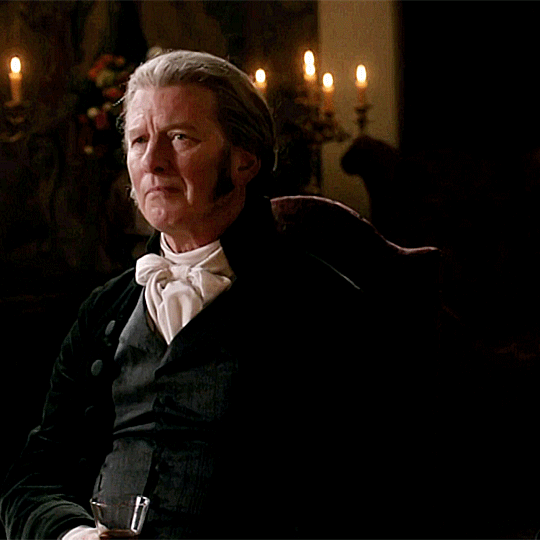

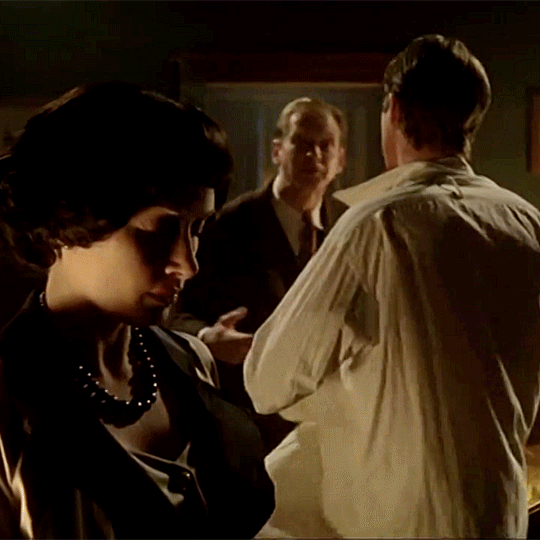








Happy 66th birthday James Wilby.
#James Wilby#Poldark#Jericho#Marple#Sittaford Mystery#Crocodile Shoes#Vincent#Our Zoo#Trial And Retribution#New Tricks#A Tale Of Two Cities#Adrian Mole#Yocasta#Lord Falmouth#Alan Mills#Stanley Kirkwood#Ade Lynn#Sir Arthur Addison#James McCready#Peter Hammond#Sydney Carton#Zippo Montefiore#Lewis#It took a few days but I finally finished this
26 notes
·
View notes
Text
Au Pairs - Sex Without Stress (Live in Swedish TV, 1982)
youtube
#au pairs#sex without stress#lesley woods#paul foad#jane munro#peter hammond#new wave#post punk#punk funk#art punk#live 1982#swedish tv#Youtube
6 notes
·
View notes
Text
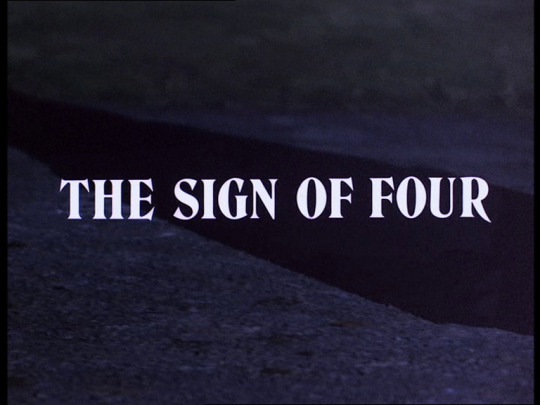



The Sign of Four (1987)
My rating: 5/10
I mean, I suppose there is something to be said for not shying away from the inherent racism and bigotry of the source material, but like. Kinda feel like maybe they should've?
#The Sign of Four#Peter Hammond#Arthur Conan Doyle#John Hawkesworth#Jeremy Brett#Edward Hardwicke#Robin Hunter
6 notes
·
View notes
Photo

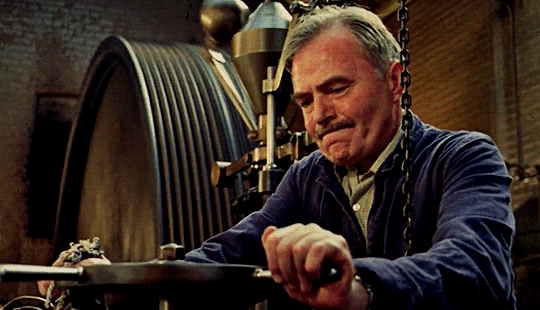
James Mason in Spring Port and Wine (1970)
#james mason#spring port and wine#peter hammond#gif edit#movie edit#film edit#1970s#english movie#gifs by me
25 notes
·
View notes
Video
youtube
Puritan Oliver Cromwell the Protector and the English Civil War
by Peter Hammond | Runtime: 1hr 44mins
#Peter Hammond#Puritan Oliver Cromwell the Protector and the English Civil War#Christian Sermons and Audio Books (channel)#video#YouTube
7 notes
·
View notes
Text
I wonder if the meta-setting reason that Peter Hammond and Cameron Michaels are separate characters is the Frozen Mana writers/editors splitting up the aspects of “a expy of Dennis Conner” between two characters so they wouldn’t be sued.
Hammond is the previously-defeated defender trying again, who’s been part of teams with “Freedom” and “Liberty” and he’s introduced as an oblivious victim of an evil boss.
Michaels is the NYYC-affiliated jerk jock hiding an awful personality behind patriotism drawn to look like Matthew Modine, and he’s a willing cyborg supervillain right from the get-go.
Oh, you think we based Michaels on your client? What do you mean, clearly Hammond has the greater resemblance to him circa 1986! Haha, thanks for reading our comics, good luck in Auckland…
0 notes
Photo



The Amazing Spider-Man (1978)
#the amazing spider-man#70s tv series#70s spiderman#nicholas hammond#peter parker#fred waugh#marvel comics#superheroes#seventies#1978
239 notes
·
View notes
Note
I see you talk a lot about historiography! What would you consider the most important development of Alexander’s historiography?
What the Hell is Historiography? (And why you should care)
This question and the next one in the queue are both going to be fun for me. 😊
First, some quick definitions for those who are new to me and/or new to reading history:
Historiography = “the history of the histories” (E.g., examination of the sources themselves rather than the subject of them…a topic that typically incites yawns among undergrads but really fires up the rest of us, ha.)
primary sources = the evidence itself—can be texts, art, records, or material evidence. For ancient history, this specifically means the evidence from the time being studied.
secondary sources = writings by historians using the primary evidence, whether meant for a “regular” audience (non-specialists) or academic discussions with citations, footnotes, and bibliography (sometimes referred to as “full scholarly apparatus”).
For ancient history, we also sometimes get a weird middle category…they’re not modern sources but also not from the time under discussion, might even be from centuries after the fact. Consider the medieval Byzantine “encyclopedia” called the Suda (sometimes Suidas), which contains information from now lost ancient sources, finalized c. 900s CE. To give a comparison, imagine some historian a thousand years from now studying Geoffry Chaucer from the 1300s, using an entry about him in some kid’s 1975 World Book Encyclopedia that contains information that had been lost by his day.
This middle category is especially important for Alexander, since even our primary sources all date hundreds of years after his death. Yes, those writers had access to contemporary accounts, but they didn’t just “cut-and-paste.” They editorialized and selected from an array of accounts. Worse, they rarely tell us who they used. FIVE surviving primary Alexander histories remain, but he’s mentioned in a wide (and I do mean wide) array of other surviving texts. Alas this represents maybe a quarter of what was actually written about him in antiquity.
OKAY, so …
The most important historiographic changes in Alexander studies!
I’m going to pick three, or really two-and-a-half, as the last is an extension of the second.
FIRST …decentering Arrian as the “good” source as opposed to the so-called “vulgate” of Diodoros-Curtius-Justin as “bad” sources.
Many earlier Alexander historians (with a few important exceptions [Fritz Schachermeyr]) considered Arrian to be trustworthy, Plutarch moderately trustworthy if short, and the rest varying degrees of junk. W. W. Tarn was especially guilty of this. The prevalence of his view over Schachermeyr’s more negative one owed to his popularity/ease of reading, and the fact he wrote on Alexander for volume 6 of the first edition (1927) of the Cambridge Ancient History, later republished in two volumes with additions (largely in vol. 2) in 1948 and 1956. Thus, and despite being a lawyer (barrister) not a professional historian, his view dominated Alexander studies in the first half of the 20th century (Burn, Rose, etc.)…and even after. Both Mary Renault and Robin Lane Fox (neither of whom were/are professional historians either), as well as N. G. L. Hammond (with qualifications), show Tarn’s more romantic impact well into the middle of the second half of the 20th century. But you could find it in high school and college textbooks into the 1980s.
The first really big shift (especially in English) came with a pair of articles in 1958 by Ernst Badian: “The Eunuch Bagoas,” Classical Quarterly 8, and “Alexander the Great and the Unity of Mankind,” Historia 7. Both demolished Tarn’s historiography. I’ve talked about especially the first before, but it really WAS that monumental, and ushered in a more source-critical approach to Alexander studies. This also happened to coincide with a shift to a more negative portrait of the conqueror in work from the aforementioned Schachermeyr (reissuing his earlier biography in 1973 as Alexander der Grosse: Das Problem seiner Persönlichtenkeit und seines Wirkens) to Peter Green’s original Alexander of Macedon from Thames and Hudson in 1974, reissued in 1991 from Univ. of California-Berkeley. J. R. Hamilton’s 1973 Alexander the Great wasn’t as hostile, but A. B. Bosworth’s 1988 Conquest and Empire: The Reign of Alexander the Great turned back towards a more negative, or at least ambivalent portrait, and his Alexander in the East: The Tragedy of Triumph (1996) was highly critical. I note the latter two as Bosworth wrote the section on Alexander for the much-revised Cambridge Ancient History vol. 6, 1994, which really demonstrates how the narrative on Alexander had changed.
All this led to an unfortunate kick-back among Alexander fans who wanted their hero Alexander. They clung/still cling to Arrian (and Plutarch) as “good,” and the rest as varying degrees of bad. Some prefer Tarn’s view of the mighty conqueror/World unifier/Brotherhood-of-Mankind proponent, including that He Absolutely Could Not Have Been Queer. Conversely, others are all over the romance of him and Hephaistion, or Bagoas (often owing to Renault or Renault-via-Oliver Stone), but still like the squeaky-nice-chivalrous Alexander of Plutarch and Arrian.
They are very much still around. Quite a few of the former group freaked out over the recent Netflix thing, trotting out Plutarch (and Arrian) to Prove He Wasn’t Queer, and dismissing anything in, say, Curtius or Diodoros as “junk” history. But I also run into it on the other side, with those who get really caught up in all the romance and can’t stand the idea of a vicious Alexander.
It's not necessary to agree with Badian’s (or Green’s or Schachermeyr’s) highly negative Alexander to recognize the importance of looking at all the sources more carefully. Justin is unusually problematic, but each of the other four had a method, and a rationale. And weaknesses. Yes, even Arrian. Arrian clearly trusted Ptolemy to a degree Curtius didn’t. For both of them, it centered on the fact he was a king. I’m going to go with Curtius on this one, frankly.
Alexander is one of the most malleable famous figures in history. He’s portrayed more ways than you can shake a stick at—positive, negative, in-between—and used for political and moral messaging from even before his death in Babylon right up to modern Tik-Tok vids.
He might have been annoyed that Julius Caesar is better known than he is, in the West, but hands-down, he’s better known worldwide thanks to the Alexander Romance in its many permutations. And he, more than Caesar, gets replicated in other semi-mythical heroes. (Arthur, anybody?)
Alfred Heuss referred to him as a wineskin (or bottle)—schlauch, in German—into which subsequent generations poured their own ideas. (“Alexander der Große und die politische Ideologie des Altertums,” Antike und Abendland 4, 1954.) If that might be overstating it a bit, he’s not wrong.
Who Alexander was thus depends heavily on who was (and is) writing about him.
And that’s why nuanced historiography with regard to the Alexander sources is so important. It’s also why there will never be a pop presentation that doesn’t infuriate at least a portion of his fanbase. That fanbase can’t agree on who he was because the sources that tell them about him couldn’t agree either.
SECOND …scholarship has moved away from an attempt to find the “real” Alexander towards understanding the stories inside our surviving histories and their themes. A biography of Alexander is next to impossible (although it doesn’t stop most of us from trying, ha). It’s more like a “search” for Alexander, and any decent history of his career will begin with the sources. And their problems.
This also extends to events. I find myself falling in the middle between some of my colleagues who genuinely believe we can get back to “what happened,” and those who sorta throw up their hands and settle on “what story the sources are telling us, and why.” Classic Libra. 😉
As frustrating as it may sound, I’m afraid “it depends” is the order of the day, or of the instance, at least. Some things are easier to get back to than others, and we must be ready to acknowledge that even things reported in several sources may not have happened at all. Or at least, were quite radically different from how it was later reported. (Thinking of proskynesis here.) Sometimes our sources are simply irreconcilable…and we should let them be. (Thinking of the Battle of Granikos here.)
THIRD/SECOND-AND-A-HALF …a growing awareness of just how much Roman-era attitudes overlay and muddy our sources, even those writing in Greek. It would be SO nice to have just one Hellenistic-era history. I’d even take Kleitarchos! But I’d love Marsyas, or Ptolemy. Why? Both were Macedonians. Even our surviving philhellenic authors such as Plutarch impose Greek readings and morals on Macedonian society.
So, let’s add Roman views on top of Greek views on top of Macedonian realities in a period of extremely fast mutation (Philip and Alexander both). What a muddle! In fact, one of the real advantages of a source such as Curtius is that his sources seem to have known a thing or three about both Achaemenid Persia and also Macedonian custom. He sometimes says something like, “Macedonian custom was….” We don’t know if he’s right, but it’s not something we find much in other histories—even Arrian who used Ptolemy. (Curtius may also have used Ptolemy, btw.)
In any case, as a result of more care given to the themes of the historians, a growing sensitivity to Roman milieu for all of them has altered our perceptions of our sources.
These are, to me, the major and most significant shifts in Alexander historiography from the late 1800s to the early 2100s.
#asks#historiography#alexander the great#arrian#curtius#plutarch#diodorus#justin#w.w. tarn#fritz schachermeyr#a.b. bosworth#peter green#n.g.l. hammond#mary renault#robin lane fox#j.r. hamilton#ernst badian#classics#ancient history#ancient macedonia
23 notes
·
View notes
Text
This is possibly the greatest plot twist in any superhero property ever!! And definitely the greatest spiderman moment ever!!
#spiderman#spider-man#peter parker#spider man tv show#nicholas hammond#1970’s spiderman#plot twist#marvel#funny#what a twist#the amazing spider man#spider man#marvel comics#mcu
51 notes
·
View notes
Text
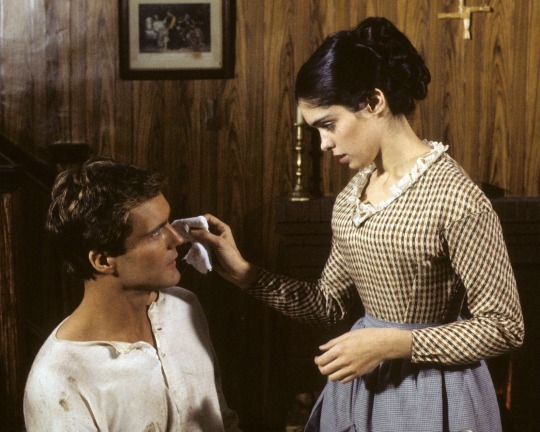

Kathleen Beller, Nicholas Hammond, and Peter Gilmore in Mansions of America, 1981.
33 notes
·
View notes
Text



Why does he look like that
#someone please tell me he was hot shit back in the day#I was infant in early 2000s so i do not know#2008#i think#Richard Hammond#top gear#omg like#y2k#!!!#british television#i actually like the messy hair tbh#blue peter
64 notes
·
View notes
Text

Muse by me - #BW #PORTRAIT #BEAUTY
5 notes
·
View notes
Text

Homem-Aranha Volta a Atacar.
3 notes
·
View notes
Text







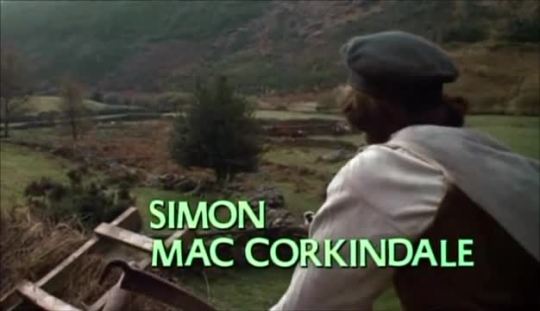








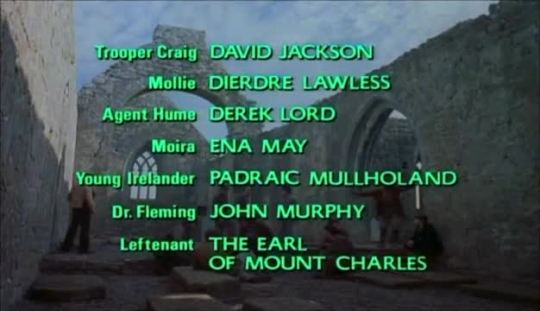
The Manions of America - ABC - September 30, 1981 - October 2, 1981
Drama (3 episodes)
Running Time: 360 minutes
Stars:
Kathleen Beller as Maureen O'Brian
Pierce Brosnan as Rory O'Manion
Steve Forrest as James Kent
Peter Gilmore as Jim O'Brien
Nicholas Hammond as Padric O'Manion
Simon MacCorkindale as David Clement
Kate Mulgrew as Rachel Clement
Barbara Parkins as Charlotte Kent
Linda Purl as Deirdre O'Manion
Simon Rouse as Eamon Fleming
David Soul as Caleb Staunton
Anthony Quayle as Lord Montgomery
#The Manions of America#TV#Drama#ABC#1981#Kathleen Beller#Pierce Brosnan#Steve Forrest#Peter Gilmore#Nicholas Hammond#Simon MacCorkindale#Kate Mulgrew#Barbara Parkins#Linda Pearl#Simon Rouse#David Soul#Anthony Quayle
8 notes
·
View notes
Text

J. Jonah Jameson could’ve struck gold if he ran a British newspaper and lacked any moral or journalistic integrity.
#Kind of funny that more recent iterations (MCU and Insomniac Games) depict him as an Alex Jones type#He’s always drawn the line at targeting marginalized groups and platforming bigoted ideals#There are comics where he’s standing up to racists and xenophobes for being anti-black or anti-immigrant#The 1977 made-for-TV movie starring Nicholas Hammond also paints Jonah as conservative#After Peter and his coworker get a call from the Atlantic Socialist Alliance asking for a donation#They laugh and said coworker says Jameson is ‘so conservative he wouldn’t even eat a piece of stake if it was a little bit pink’#(referring to the perjorative ‘pinko commies’ of the time)#But what I did like about that scene is that it paints Peter Parker as sympathetic towards socialism (and Jonah could always learn and grow)#Of course I’d hardly say canon Jameson is socialist-adjacent but his social politics have at least always had a progressive leaning#And he was apparently ahead of a lot of so-called liberal media outlets of today (especially over on TERF Island)
9 notes
·
View notes
Photo





The Amazing Spider-Man (1979)
#the amazing spider-man#nicholas hammond#marvel comics#peter parker#70s spiderman#70s tv series#superheroes#rosalind chao#spiderman: the dragon's challenge#the chinese web#seventies#1979
395 notes
·
View notes